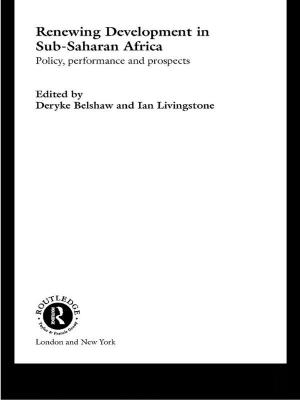Animal Intelligence
Experimental Studies
Nonfiction, Health & Well Being, Psychology, Cognitive Psychology| Author: | Edward Thorndike | ISBN: | 9781351321020 |
| Publisher: | Taylor and Francis | Publication: | November 30, 2017 |
| Imprint: | Routledge | Language: | English |
| Author: | Edward Thorndike |
| ISBN: | 9781351321020 |
| Publisher: | Taylor and Francis |
| Publication: | November 30, 2017 |
| Imprint: | Routledge |
| Language: | English |
Animal Intelligence is a consolidated record of Edward L. Thorndike's theoretical and empirical contributions to the comparative psychology of learning. Thorndike's approach is systematic and comprehensive experimentation using a variety of animals and tasks, all within a laboratory setting. When this book first appeared, it set a compelling example, and helped make the study of animal behavior very much an experimental laboratory science.
This landmark study in the investigation of animal intelligence illustrates Thorndike's thinking on the evolution of the mind. It includes his formal statement of the influential law of effect, which had a significant impact on other behaviorists. Hull's law of primary reinforcement was closely related to the law of effect and Skinner acknowledged that the process of operant conditioning was probably that described in the law of effect.
The new introduction by Darryl Bruce is an in-depth study of Thorndike's legacy to comparative psychology as well as a thorough retrospective review of Animal Intelligence. He includes a biographical introduction of the behaviorist and then delves into his theories and work. Among the topics Bruce covers with respect to Thorndike's studies are the nature of animal intelligence, the laws of learning and connectionism, implications for comparative psychology, and relation to theories of other behaviorists. Animal Intelligence is an intriguing analysis that will be of importance to psychologists and animal behaviorists.
Animal Intelligence is a consolidated record of Edward L. Thorndike's theoretical and empirical contributions to the comparative psychology of learning. Thorndike's approach is systematic and comprehensive experimentation using a variety of animals and tasks, all within a laboratory setting. When this book first appeared, it set a compelling example, and helped make the study of animal behavior very much an experimental laboratory science.
This landmark study in the investigation of animal intelligence illustrates Thorndike's thinking on the evolution of the mind. It includes his formal statement of the influential law of effect, which had a significant impact on other behaviorists. Hull's law of primary reinforcement was closely related to the law of effect and Skinner acknowledged that the process of operant conditioning was probably that described in the law of effect.
The new introduction by Darryl Bruce is an in-depth study of Thorndike's legacy to comparative psychology as well as a thorough retrospective review of Animal Intelligence. He includes a biographical introduction of the behaviorist and then delves into his theories and work. Among the topics Bruce covers with respect to Thorndike's studies are the nature of animal intelligence, the laws of learning and connectionism, implications for comparative psychology, and relation to theories of other behaviorists. Animal Intelligence is an intriguing analysis that will be of importance to psychologists and animal behaviorists.















